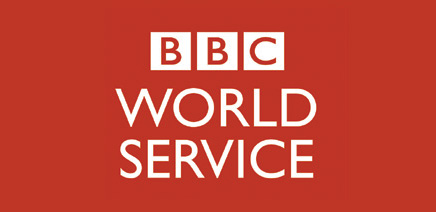
There is a catastrophic gap between promises to cut carbon emissions and the actions need to deliver those cuts. That is the verdict today from the United Nations, a new UN Report says amounts pledged in the Paris Agreement amount to just a third of what is needed to avoid the worst impacts of climate change. It is calling on both governments and the private sector to do more to breech the gap.
“Catastrophic is the right word, if we don’t close that gap then it will be a catastrophe. It will be a catastrophe for everyone on the planet, and it will make it impossible for businesses of all kind to attract investors, or to find markets.”
“The problem is climate change, there isn’t anything going on that we didn’t anticipate. When Paris came out, it was well understood, that although it put us on the right road, it wasn’t going to take us far enough down the road and it wasn’t going to do it fast enough, and this report has confirmed that judgement. We’ve seen some of those flashing red lights coming up in other areas recently, we have seen it with extreme weather events, we have see it with the report that came out in the last few days about the impacts on health. We are starting to see that the climate is changing faster and more dramatically than we anticipated.”
“I think we have got to move out of coal extremely fast, and by and large the OECD countries are already doing that, China’s starting to do that, but there are quite a lot more proposals to build coal fried power stations in developing countries. Now actually that is probably not going to be the best ways economically to solve the problem you have in a lot of developing countries, which is large populations without access to electricity. What has now become clear, because the cost of renewables have gone down so fast, is that it is probably much better to invest in deploying renewables to get electricity particularly to rural populations. We have seen India shift it’s emphasis from talking about coal to talking about renewables. I think that needs to become more widely accepted around developing countries.”
“What we are seeing already is that renewables, basically solar and wind, are now beginning to compete even with gas, without subsidy, because the cost are coming down in many parts of the world really fast. I think that we are going to see is the same thing happening with vehicles because battery cost are coming down. Where I think we really have got to make much more progress is with buildings, and I think that the report is absolutely right to say that there an enormous amount of cost effective things that we can do to reduce the emissions from buildings. But the bit that people haven’t begun to focus on anything like enough, are the emissions from agriculture. We really need to do a lot more.”
“90 percent of businesses on the stock market don’t emit much, of any kind of emissions. Their emissions are not the problem. The emissions that are the problem are those that come from the fossil fuel industries, and their primary customers, the power industry, the motor industry. In effect, what is happening to the bulk of businesses, if we don’t deal with this, is that the fossil fuel industries are eating their lunch. Because the non-fossil fuel industries, the bulk of the stock exchange, don’t suffer from a successful climate policy. Where as if you constrain the use of carbon and therefore solve the climate problem, you do hit the oil and gas industries, you hit the motor industry, and you hit the very energy intensive industries. But that is a very small part of the stock exchange. Most businesses have a lots to gain from successful policy that closes that gap, and much to lose if we don’t close it.”
“Fossil fuel businesses need to get out of fossil fuels fast, what companies like the Shell’s the Exxon’s the BP’s need to do is to join in the energy transition a lot more aggressively than they are doing. The non-fossil fuel businesses, need to get government to act much more quickly. Because if they don’t get government to act much more quickly, because if they don’t put pressure on government, they will find that the gap goes on, we get catastrophic climate change, and their business gets hurt.”
